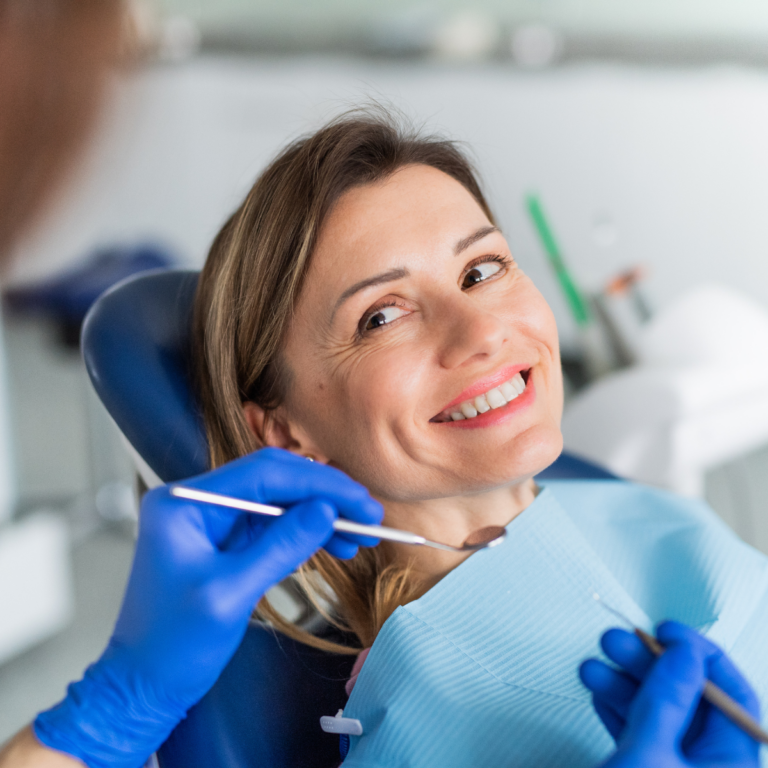6 Great Habits for In-Between Hygiene Appointments: Maintaining Oral Health for All Ages
Regular dental appointments are essential for maintaining optimal oral health. However, what we do in between those appointments is equally important. By adding some easy and effective habits to your daily routine, you can ensure strong teeth, healthy gums, and prevent dental issues. In this article, we will explore the essential habits that people of all ages should adopt to keep their mouths clean and maintain a confident smile between dental visits.
1. Brushing Teeth Twice a Day
Brushing our teeth is the foundation of good oral hygiene. It is crucial to brush our teeth at least twice a day, using a soft-bristled toothbrush and fluoride toothpaste. Brushing in the morning helps eliminate the bacteria and plaque that have accumulated overnight while brushing before bed removes food particles and plaque that have built up throughout the day.
2. Flossing Daily for Oral Health
To floss effectively, use a generous length of dental floss and slide it gently between each tooth. Curve the floss around the base of each tooth, making sure to go beneath the gum line. Be cautious not to snap the floss against the gums, as this can cause irritation. Remember to use a clean section of the floss for each tooth to avoid spreading bacteria.

3. Mouthwash for Oral Health
Adding mouthwash to your oral hygiene routine can provide additional protection against bacteria and bad breath. Mouthwash can reach areas in the mouth that brushing and flossing may miss. Look for an antibacterial mouthwash that contains fluoride to help prevent tooth decay and strengthen tooth enamel.
After brushing and flossing, rinse your mouth with mouthwash for about 30 seconds, following the instructions on the label. Spit out the mouthwash, and avoid eating or drinking for at least 30 minutes to allow the fluoride to work effectively.
4. Healthy Diet for Strong Teeth and Good oral health
We all know that sugary and acidic foods and beverages can have a negative impact on our teeth, leading to tooth decay and enamel erosion. So it’s a good idea to limit our intake of these types of foods and drinks.
Instead, let’s choose some teeth-friendly snacks like fresh fruits, vegetables, cheese, and nuts. Additionally, drinking plenty of water throughout the day also helps wash away food particles and keeps the mouth hydrated.

5. Don't Forget Your Tongue and Gums for Oral Health
While brushing and flossing are important, paying attention to your tongue and gums is key. Bacteria can accumulate on the surface of your tongue, leading to bad breath and oral health problems. To avoid this, simply use a tongue scraper or toothbrush to gently clean your tongue whenever you brush your teeth.
When it comes to your gums, they play a vital role in maintaining healthy teeth. To keep them in good shape, make sure to gently brush along the gumline to remove plaque and stimulate circulation. Healthy gums are the foundation for healthy teeth, so be sure to include them in your daily oral hygiene routine.
6. Replace Toothbrushes Regularly
Toothbrushes wear out over time and become less effective at removing plaque and bacteria. Replace your toothbrush every three to four months if the bristles become frayed. Using a worn-out toothbrush can be harsh on your gums and may not effectively clean your teeth.
Maintaining optimal oral health between dental appointments requires consistent effort and adopting good oral hygiene habits. By brushing twice a day, flossing daily, using mouthwash, eating a healthy diet, caring for your tongue and gums, and replacing toothbrushes regularly, people of all ages can ensure healthy teeth, gums, and a beautiful smile.
Remember, practicing good oral hygiene habits not only promotes oral health but also contributes to your overall well-being. Make these habits a part of your daily routine and enjoy the benefits of a healthy and confident smile!
Contact us and achieve a brighter and healthier smile!
